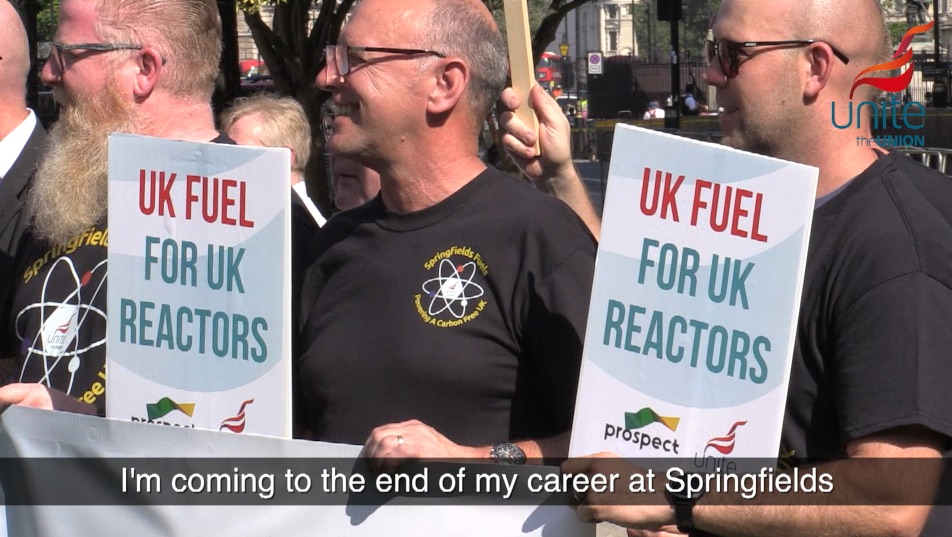Just transition plan
Four unions with 200,000 members in the energy sector have produced a blueprint so workers and communities can be helped to adapt to the advent of the low carbon economy.
Today (December 18), the unions – GMB, Prospect, UNISON and Unite – launched a 10-point template, Demanding a Just Transition For Energy Workers.
The unions have called for talks with Greg Clark, secretary of state for business, energy and industrial strategy in the New Year to chart a constructive way forward in the decade ahead.
The unions said,“Ten years on from the Climate Change Act, the UK still does not have a plan that puts workers, future skills and affected communities at the heart of energy policy.”
The four key elements to â€a just transition’ were spelled out by the unions, which include calls for a balanced low carbon energy mix; investments in skills and infrastructure; protecting and creating high-quality jobs and employment; and ensuring no community is left behind.
“The government needs to do a lot of heavy lifting through its industrial strategy to ensure a â€just transition’ for the 200,000 energy workers and their communities – and that’s why we are pressing for talks with the business secretary Greg Clark in the New Year on the myriad of issues thrown up by the advent of the low carbon economy,” said Unite national officer for energy Peter McIntosh.
“The workers and trade unions need to be centre stage in negotiating a bright future for the sector – they can’t be bit players,” he added.
Sue Ferns, Prospect’s senior deputy general secretary added, “A Just Transition to a low carbon economy is not simply about safeguarding jobs and the environment but also about maintaining skills.
“There are a lot of talented, highly skilled people in the energy sector and they can bring huge value to employers, and to our ability to hit vital carbon targets, if we successfully transfer them from higher carbon to lower carbon jobs. This will not happen without a clear statement of purpose from government, a clear plan to achieve it, and the commitment of the necessary funds.
“We also need to invest in the skills of the future by tailoring university and vocational courses to the skills industry needs. This is the best way to ensure there are skilled, meaningful jobs for our young people, particularly in areas like coastal towns where such jobs have recently been few and far between.”
Justin Bowden, GMB national secretary for energy noted, “As we move to a lower carbon world, it must be the workers and their communities most affected by the change who set the priorities and lead the debate.
“If not, then it cannot be a just transition. Workers across the energy sectors are clear what is it that they want and need from a just transition and they are the people best placed to set the agenda.”
UNISON national energy officer, Matt Lay said, “The move to a low carbon economy threatens the jobs and livelihoods of workers in the energy sector. But with a just transition, they won’t simply be abandoned. With proper investment and training, both they and their communities can share in the benefits of a sustainable future.”
The transition demands were agreed at a joint union conference held in the autumn.
 Like
Like Follow
Follow


